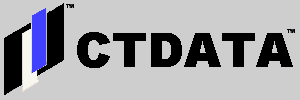TCO of Software is Not Generally Reflected in License Cost
In an opinion piece published today in Computerworld, Alan McCormack suggests that total cost of ownership of software is less dependent on the cost of licenses than most people think. He writes:
{It} appears that the price of software itself -- whether it's free or not -- is so low relative to the TCO that it may have little impact on the outcome of IT investment decisions for many purchasers. In most cases, the price of software proved to be less than 10% of the total cost of ownership. Where costs do become significant for all types of software is in the level of staffing needed. By staffing, I mean the training, maintenance, support, administration and other personnel costs necessary to run the software package efficiently. These costs can add up to as much as 50% to 70% of a software system's TCO over its useful life.
This piece is short, but worth reading for its valuable summary of the costs of software operation. It makes no effort to estimate the value of any piece of software to an enterprise, which seems an even more difficult thing to establish after reading this article.
Too often, people assume that all software provides the same benefits to users. But specific products and features that are essential to some users will obviously increase a particular software package's value relative to those of other packages. Furthermore, a software platform that provides more applications and choices for users also brings with it a certain, often unmeasured, value. A CIO must therefore examine differences in both cost and value to make an effective investment decision for a software package.
McCormack appears to be a skeptic on the merits of Open Source software, but goes on to admit that the
value of any piece of software can only be determined through application-specific analysis. This is a reasonable conclusion, but a frustrating one because it does not deliver the sweeping conclusion that advocates of Open Source or commercial software often seek.
